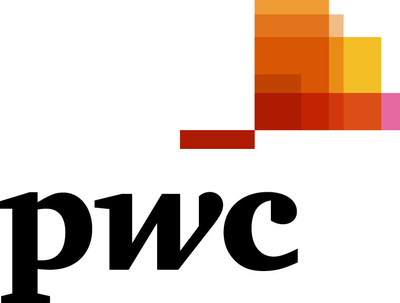Rapidly Changing Behaviours In 2020 Are Accelerating Consumer Embrace of Digital, Health, and Sustainability Trends, Says PwC

NEW YORK, July 7, 2020 /PRNewswire/ —
- 45% of global consumers say healthcare is one of the top three reasons for living in a city
- 69% of global consumers are more focused on mental health and well being
- 43% of global consumer expect businesses to be accountable for their environmental impact
The acceleration of consumer trends and behavior that was already underway prior to the COVID-19 outbreak has taken another leap forward and will spark consumer-facing companies and retailers to reinvent the way they do business, according to a new PwC report.

The findings from two surveys taken before and after the COVID-19 pandemic and published today in PwC’s 11th consecutive Global Consumer Insights Survey focus on urban consumer purchasing habits and behaviours, and how global disruption has forced the acceleration of a more digital way of life. Billions of people worldwide live in cities, and this concentration has created a new era in global consumption; cities are the hubs where economic activity happens.
The survey results reveal that the pandemic and the ensuing social distancing measures put in place have led to fundamental changes in how consumers work, eat, communicate, and take care of their health.
Consumers have adapted how they shop
Social distancing measures put in place because of the coronavirus have affected consumers in all aspects of life, including how they purchase groceries. While in-store grocery shopping is the main channel of choice, over a third of consumers (35%) are now buying food online, with 86% of those who shop online planning to continue after social distancing measures are removed. For non-food items, prior to the pandemic in-store shopping was still dominant compared to online shopping with 47% of consumers saying they shopped at brick-and-mortar stores daily or weekly compared to shopping via mobile phones (30%), computers (28%) and smart voice assistants (15%). Since then, online shopping for non-food items has seen a substantial increase (mobile phone 45%; computer 41%; tablet 33%), the trend is especially pronounced in China and the Middle East, with 60% and 58% of respondents respectively saying they’ve started shopping more on their mobile phones.
The importance of connection, community and self-care is clear
Fifty-nine percent of millennials and 57% of those with children are placing a greater focus on their wellbeing than other groups. Focus on self-care has increased, with 51% of urban consumers agreeing or strongly agreeing that they are more focused on taking care of their mental health and wellbeing, physical health and diet as a result of COVID-19.
Urban dwellers surveyed after the outbreak, viewed safety and security, and healthcare just as important to their quality of life as employment prospects, with 49% and 45% of respondents saying so, respectively, compared to 45% for employment.
Consumers and sustainability
Our research showed a clear embrace of sustainability and a sense of civic duty. For example, in survey results taken prior to the pandemic, 45% of our global respondents say they avoid the use of plastic whenever possible, 43% expect businesses to be accountable for their environmental impact, and 41% expect retailers to eliminate plastic bags and packaging for perishable items. Interestingly, when we asked consumers who were most responsible for encouraging sustainable behaviours in their city, 20% chose “me the consumer,” while 15% chose “the producer or manufacturer.” When we asked consumers about their willingness to share data, 49% said they were willing to share their data if it helped improve their city.
“While certain trends have been on the upswing for quite some time, our research shows that the pandemic has sharpened consumers’ desire for transparency, sustainability and convenience. The companies that will reap the most rewards are the ones that have established trust with the consumer, invested in a seamless and frictionless end-to-end customer purchase journey and prioritized the consumers’ health and safety,” says Steve Barr, Global Consumer Markets Leader, PwC US.
In addition, Oz Ozturk, Global Consumer Markets Advisory Leader, PwC UK said, “In our 11 years of surveying consumers around the globe, we have never documented such a clear convergence of themes around transparency, sustainability, and social consciousness. At such a pivotal moment, the need for consumer-facing companies to establish trust with potential customers could not be any clearer.”
Notes to editors
Global Consumer Insights Survey is PwC’s 11th consecutive survey of global consumers. PwC conducted two separate online surveys, the first survey collected responses from 19,098 consumers from 27 countries or territories and 74 cities between August and September 2019. The second survey collected responses from 4,447 consumers from 9 countries or territories and 35 cities between April and May 2020. To download the full report, visit www.pwc.com/consumerinsights
About PwC
At PwC, our purpose is to build trust in society and solve important problems. We’re a network of firms in 157 countries with over 276,000 people who are committed to delivering quality in assurance, advisory and tax services. Find out more and tell us what matters to you by visiting us at www.pwc.com.
PwC refers to the PwC network and/or one or more of its member firms, each of which is a separate legal entity. Please see www.pwc.com/structure for further details.
Logo: http://ns2.healthtechnologynet.com/wp-content/uploads/2020/07/PWC_Logo.jpg
View original content:http://www.prnewswire.com/news-releases/rapidly-changing-behaviours-in-2020-are-accelerating-consumer-embrace-of-digital-health-and-sustainability-trends-says-pwc-301089542.html
SOURCE PwC Global
